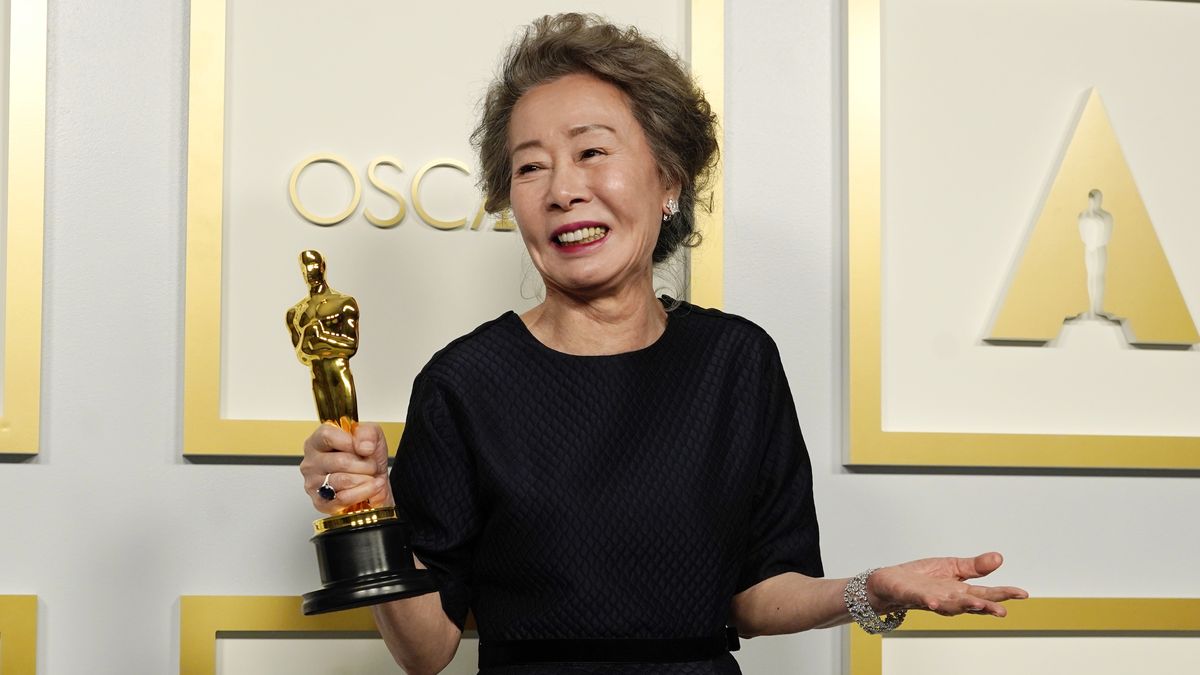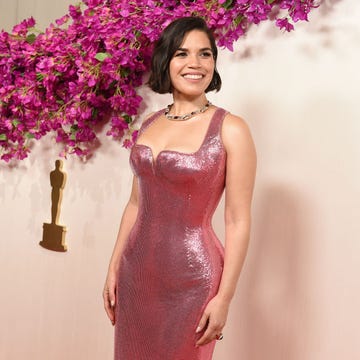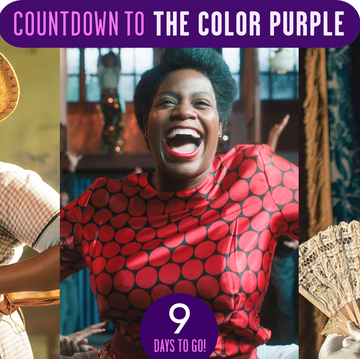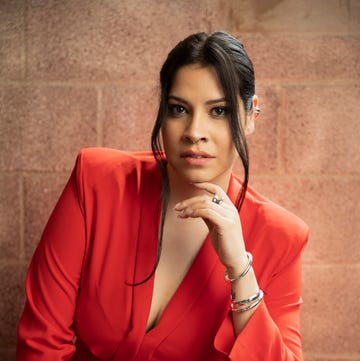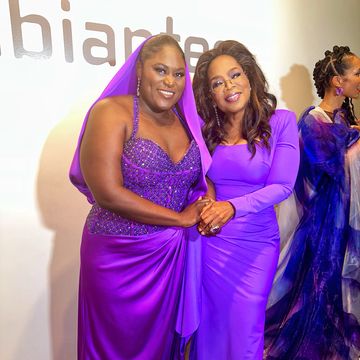Lee Isaac Chung's tender family drama Minari has made Academy Awards history. The film, which tells the story of a Korean family making a new life for themselves in rural Arkansas, was up for an armful of Oscars, including Best Picture and Best Director. Yuh-Jung Youn won Best Supporting Actress for her charismatic and moving performance in Minari—and in doing so, she became the first Asian actress to win an Oscar since 1957, and the second ever.
Youn has been a star in Korea since the early 1970s, appearing in a myriad of acclaimed TV programs and films. In Minari, she plays Soon-ja, the grandmother of the family who arrives in Arkansas from South Korea midway through the film.
You can watch her full (and funny) Oscars speech in which she shouts out Brad Pitt, jokes that she must simply be luckier than fellow nominee Glenn Close, and "forgives" everyone who has mispronounced her name, below:
Her performance has been praised as "marvelous" by The Guardian and "bittersweet" by The New York Times.
"Me, a 73-year-old Asian woman could have never even dreamed about being nominated for an Oscar,” Youn told The Times. “Minari brought me a lot of gifts.”
Youn told the Motion Picture Association's publication, The Credits, that her portrayal of Soon-ja was inspired by her own grandmother, who passed when she was a child. She says she began to understand her much better once she reached 60, and was able to craft a character that is wise and forthright, one that has resonated with many viewers.
Here's what you should know about Yuh-Jung Youn's historic acting career, her work in Minari, and her passion for food.
Yuh-Jung Youn has been a star of South Korean film and TV for decades.
Raised by her widowed mother, Youn began acting as a teenager when she didn't get into a prestigious college, she told The Hollywood Reporter. Youn made her first film appearance in 1971's Woman of Fire, and quickly became a mainstay of programming in Korea, largely focusing on television instead of film until the early 2000s.
Since then, she's appeared in well-regarded films like A Good Lawyer's Wife, Boomerang Family, and Hill of Freedom. She's mostly learned about her craft on the job, which she said leads her to delve deeply into each script she receives.
"I didn’t go to acting school and I didn’t study film, so I had an inferiority complex. I practiced so hard when I got a script,” she told The New York Times.
For her longevity in the industry, Youn has occasionally been called "the Meryl Streep of South Korea." In an interview during the Minari press cycle, she said she is flattered by the comparison, but also hopes to be seen as her own figure.
"I feel sorry for me and for Meryl Streep—she doesn’t know me! To be honest with you, I don’t like to be compared with somebody. I don’t like to be the competition," she told Deadline. "I admire her work and everything, but there’s a story for her and there’s a story for me. I’m Korean."
Per the Motion Picture Association, she's frequently able to nail scenes in a single take, another quality she attributes to the unconventional way she ended up in the profession.
"Usually, actors and actresses fall in love with theater or film, and study and learn so they can be successful, but that was not the case with me," she said. "I bumped into acting. I fell into it. So that’s why I tried to practice a lot, trying to prepare before performances, because I felt like I was not ready like they were. I had to do more.
As she's gotten older, Youn says she's found herself more willing to take chances with her work.
"Now I am just crazy enough to do any role. I don’t mind whether it’s a leading or supporting role, or even a small part, I don’t care. I promised myself after I turned 60 that I would enjoy the rest of my career," she told the Motion Picture Association. "I don’t have to be obsessed with doing a certain kind of role for my name or something like that.
She has two children who were partially raised in the United States.
Youn shouted out her children in her Academy Awards speech, thanking her "two boys who make [her] go out and work." She added, "This is the result because mommy worked so hard." Per her interview with The Times, Youn moved to Florida in the 1970s with her then-husband while he was attending college. During that time she focused on raising her kids, both boys who were born in the States. But eventually, Youn and Jo Young-nam split, and she moved back to Korea as a single mother.
"Getting a divorce with two children is not a pleasant thing. Of my lifetime experiences of tragic moments, my father passed away when I was 10," she told ScreenDaily, explaining that the financial circumstances prompted her to take whatever roles were available to her. "At the time, I didn’t know it was very tragic because what would a child know? But this, it hit me badly. I was just [a shadow of] myself.”
Youn told Deadline that the recent wave of anti-Asian violence in places like the United States has caused anxiety for her and her family.
"My son, who is Korean American, is living in the States. He was worried about me coming to the States for the Oscars, because he was scared I would get hurt," she explained. "He asked, 'Don’t you need to have some guard or something like that?' It’s a sad thing. Just because you are Asian, there’s no reason to be attacked randomly like that."
Youn appeared on a culinary reality show in South Korea.
In a food-centric interview with Esquire, Youn said a well-known Korean reality show producer approached her with the idea for Youn's Kitchen, a TV show where actors and celebrities attempt to run a pop-up restaurant of their own. Like her character in Minari, Youn says that she doesn't cook.
Youn shared her family's recipe for kimchi-jjigae–a spicy kimchi stew–with Esquire, and said that it was a dish many Korean families had their own take on.
She's been candid about the pressure that came with her historic Oscar nod.
Speaking to Deadline before her win, Youn reflected on what it was like to make history as the first Korean woman to be nominated for an acting Oscar.
"[It's] very stressful. I was just very happy being nominated. I never even dreamed about being nominated for an Oscar. People will be very happy for me if I get the win, but it’s very stressful," she said. "It’s not like I’m representing the country by going to the Olympics, but I feel like I’m competing for my country."
While the Academy Award win was, of course, a huge milestone for Youn, the veteran actor is no stranger to the awards circuit. She received her first nomination in 1969 for Best New Talent at the TBC Drama Awards, and has taken home Best Supporting Actress at the Korean Film Awards twice (for 2003's A Good Lawyer's Wife and 2010's The Housemaid).

Grant Rindner is a culture and music journalist in New York. He has written for Billboard, Complex, and i-D, among other outlets.
